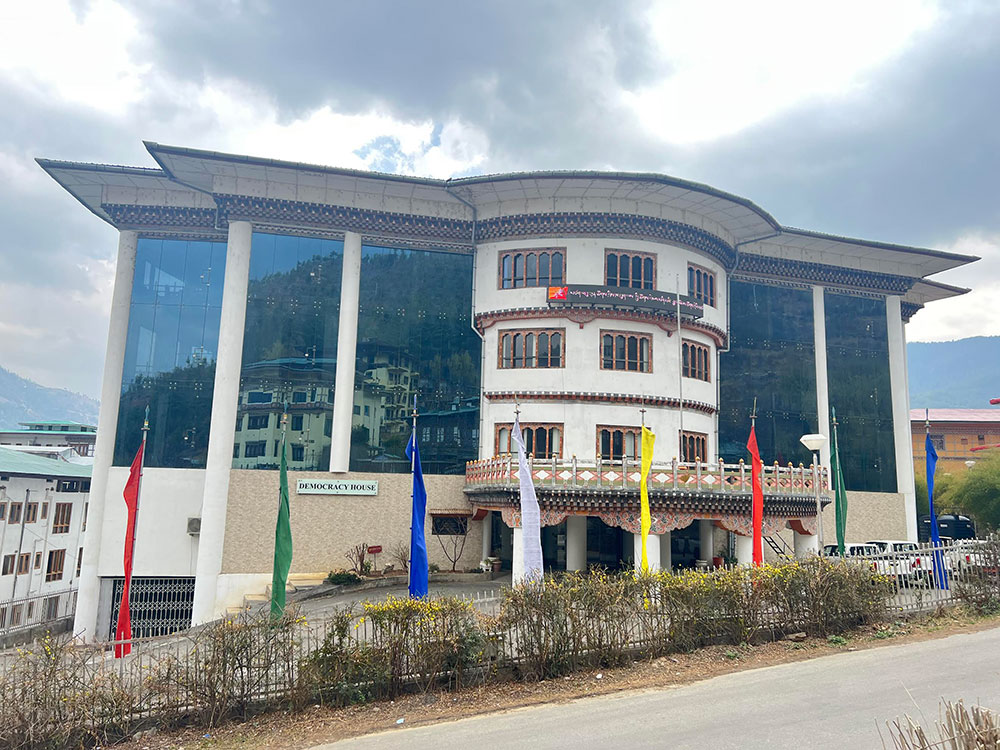
Reviving the economy is at the core of all the five political parties who submitted their draft manifestos to the Election Commission of Bhutan (ECB) yesterday.
A manifesto is a a public declaration of policy and aims of a political party or candidate issued before an election. While details of the manifestos are not shared, party spokespersons said that the manifestos were readied considering the concerns of the people and the country.
An independent committee would review the manifestos, which would take around one to two weeks. After reviewing them, the parties will draft their final manifestos.
Druk Thuendrel Tshogpa (DTT) was the first party to submit its 93-page manifesto to the ECB. The party President, Kinga Tshering, said that their manifesto is based on the outcome of their public consultations with the people across the country.
He said that the manifesto culminated in “nation first” defining the economic philosophy, which is the first of its kind and one that will unleash the full potential of our nation to be rich and prosperous in the next decade.
“We had to make sure every gem of advice, the slightest of inputs and the humblest of wishes we received from our people throughout the public consultation tours made it meticulously into our manifesto,” Kinga Tshering said.
Bhutan Tendrel Party (BTP) was the second party to submit their manifesto. The 37-page manifesto, according to the party Spokesperson, Tshering Dorji, their candidate from Bji Khatshu- Eusu, Haa, is the people’s manifesto. “It is specific, measurable, achievable, relevant and time-bound,” he said.
Tshering Dorji said that the party envisions creating a prosperous Bhutan for all. “A prosperity that is underpinned by good governance, smart policies and strategies, driven by innovation, creativity and enterprise, supported by a culture of hard work and determination.”
Druk Nyamrup Tshogpa (DNT), was the third party to submit its manifesto. The 87-page manifesto, General Secretary of the party, Phurba, said focuses on prosperity, security and happiness.
Druk Phuensum Tshogpa (DPT) was the fourth party to submit. The party’s 52-page manifesto focuses on economic prosperity and social wellbeing, according to member of parliament (MP), Passang Dorji (PhD). He said that their manifesto aims at economic self-reliance, fulfilling economic self-reliance and national unity and harmony through the principle of equity and justice.
He said that 70 percent of the manifesto focuses on the economy.
“While drafting manifestos, our approach is reasonable pledges, promises over delivery,” MP Passang Dorji said, adding that their manifesto is a social contract between the people and the party.
The People’s Democratic Party (PDP) was the last party to submit their manifesto. The 142-page manifesto, according to the party’s General Secretary, Kuenga Tashi, is embedded in the aspirations of all Bhutanese for a ‘Better DRUK Yul’. It is a collective dream for a flourishing life for every Bhutanese.
Kuenga Tashi said that the country is faced with the existential crisis of economic collapse, mass emigration and the declining fertility rate. The party believes that they can collectively rebuild and subsequently make ‘DRUK Yul’ a flourishing nation once again. “Extraordinary challenges call for extraordinary solutions,” he said.
Amidst criticism why the ECB should review the manifestos, the ECB, it was learnt will not question their pledges, but will scrutinize if there are pledges that would be sensitive or against national interest and wayward promises that would attract interest of voters, but not achievable.
ECB officials could not be contacted for comments as of yesterday.












